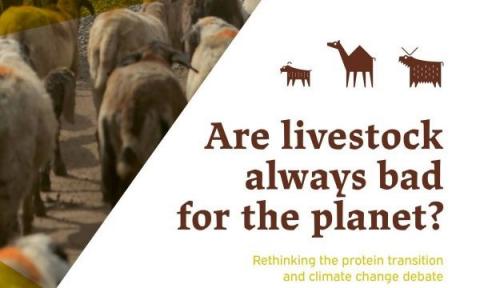Are livestock always bad for the planet? Rethinking the protein transition and climate change debate

The global debate on climate change is focusing attention on reducing emissions from livestock production, particularly ruminants. As a result, advocates of a ‘protein transition’ emphasise the need for a major shift to plant-based diets. Others call for more space devoted to nature conservation, rewilding and forestry projects.
This report warns that the dominant picture of livestock’s impacts on climate change has been distorted by faulty assumptions that focus on intensive, industrial farming in rich countries. Millions of people worldwide who depend on extensive livestock production, with relatively lower climate impacts, are being ignored by debates on the future of food. The report has been produced by the European Research Council-funded PASTRES programme, published together with the Rangelands Initiative and a number of collaborators with deep knowledge of pastoral systems across the world.
The report reviews the debates, pointing to the uncertainties and assumptions in life-cycle modelling approaches used to calculate emissions. These are often biased against extensive, mobile livestock production systems which remain poorly understood. A more integrated and holistic approach is recommended, which encompasses the wider benefits of pastoral systems for livelihoods, carbon sequestration and wider ecosystem services, nutrition, food security and incomes. The report highlights the need to show the benefits of pastoral systems across the world, while seeking appropriate climate change mitigating measures.
